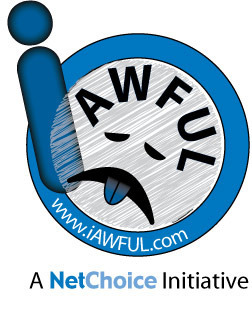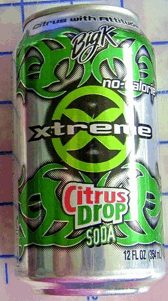Adam Thierer's Blog, page 169
September 10, 2010
Property as Privacy: The Old Supreme Court Did It Better
Up until I began doing my reading for this fall's Criminal Procedure: Investigation course, I largely bought the heroic Warren Court story of privacy and the Fourth Amendment.
The story is simple: The Supreme Court, concerned only with helping businesses through decisions like Lochner, had left people unprotected from warrantless searches and seizures. In decisions like Olmstead v. United States (holding that a warrantless wiretap did not violate the Fourth Amendment), the Court threw privacy ...
And You Look to Government for Cybersecurity?
Washington Times reporter Shaun Waterman has a characteristically excellent article out today about U.S. cybersecurity authorities failing to secure their own systems.
According to a new report by government auditors, systems at the U.S. Computer Emergency Readiness Team (US-CERT), part of the Department of Homeland Security, were not maintained with updates and security patches in a timely fashion and as a result were riddled with vulnerabilities that hackers could exploit.
Time and again...
September 9, 2010
On Defining Generativity, Openness, and Code Failure
[Over at the Concurring Opinions blog, I've posted my latest installment in the excellent online symposium they've been running on the themes set forth in Jonathan Zittrain's Future of the Internet and How to Stop It. My previous post is here. My latest is "On Defining Generativity, Openness, and Code Failure," I've pasted the entire essay down below.]
_______
I've really enjoyed the back-and-forth in this symposium about the many issues raised in Jonathan Zittrain's Future of the Net, and I a...
When the First Sentence is Wrong, Why Read On?
Individuals, shadowy criminal organizations, and nation states all now have the capacity to devastate modern societies through computer attacks.
It's simply not true.
The author must not know the meaning of "devastate," which is, according to the handiest Web dictionary, "to lay waste; render desolate."
There is no such capacity—anywhere—to do such damage through computer attacks, and the capacity of some actors to produce some inconvenience, to cause some economic harm, and perhaps to cause...
It's September – Back to Work on AWFUL Internet Laws
 After a quiet August recess in Washington, DC, it's time to refocus our efforts on public policies that impact online commerce. And today we consider not the good, and not merely the bad, but the awful – iAWFUL.
After a quiet August recess in Washington, DC, it's time to refocus our efforts on public policies that impact online commerce. And today we consider not the good, and not merely the bad, but the awful – iAWFUL.
NetChoice unveiled an updated version of out Internet Advocates' Watchlist for Ugly Laws (iAWFUL) where we track the ten instances of state and federal legislation that pose the greatest threat to the Internet and e-commerce. Our efforts so far this year have helped to remove two of...
So I'm an extremist
 After our podcast last week, Tim Lee wrote a blog post expanding on our conversation about spectrum policy. I thought I'd take a little space here to respond.
After our podcast last week, Tim Lee wrote a blog post expanding on our conversation about spectrum policy. I thought I'd take a little space here to respond.
Although we will probably continue to disagree on empirical questions, I think philosophically there is no light between Tim and me. He succinctly expresses our shared view when he writes,
The question advocates of free markets ("extreme" or otherwise) need to ask is not: which property rights should we create? Rather, we need to ask...
Seeing Like a State Author James C. Scott on Cato Unbound
Don't miss the current issue of Cato Unbound, which explores the ideas in author James C. Scott's essential book, Seeing Like a State. Scott's opening essay, "The Trouble With the View From Above," captures many of the ideas from the book.
I stumbled across Scott when I was researching my book on identification policy, Identity Crisis. As Scott observes, naming systems for people have been altered over time from vernacular to formal, the latter serving the needs of governments and large...
September 8, 2010
"Rogue Archivist" Carl Malamud On How to Fix Gov2.0
At yesterday's Gov2.0 Summit conference, "rogue archivist" Carl Malamud gave a great speech about what's wrong with government IT and what should be done about it.
"If our government is to do the jobs with which we have entrusted it, … the machinery of our government must first be made to work properly."
Malamud describes a government IT landscape that is a "vast wasteland of contracts that lie fallow inside this beltway" because of agency capture by special interests and proposes three steps t...
September 7, 2010
Don't Miss the Concurring Opinions Symposium about Zittrain's Future of the Internet
TLF readers will definitely want to check out the online symposium underway over at the Concurring Opinions blog debating the thesis set forth in Jonathan Zittrain's important 2008 book, The Future of the Internet and How to Stop It. The symposium will feature a terrific cast of thinkers, including: Steven Bellovin, Ryan Calo, Laura DeNardis, James Grimmelmann, Orin Kerr, Lawrence Lessig, Harry Lewis,Daithí Mac Síthigh, Betsy Masiello, Salil Mehra, Quinn Norton, Alejandro Pisanty, Joel...
FCC.gov/developer
Stung by criticism of its site as the "worst in government"—that mighta been Jerry Brito talking—the FCC has rolled out a new set of sites under a "Reboot" brand.
When I first saw the presentation on it at today's Gov 2.0 Summit, I thought that the FCC has merely redone its web site, but it appears to be releasing data that can be re-purposed in any number of ways for true public oversight of the agency.
Developers, check out FCC.gov/developer and let us know what you think of it.







Adam Thierer's Blog
- Adam Thierer's profile
- 1 follower



